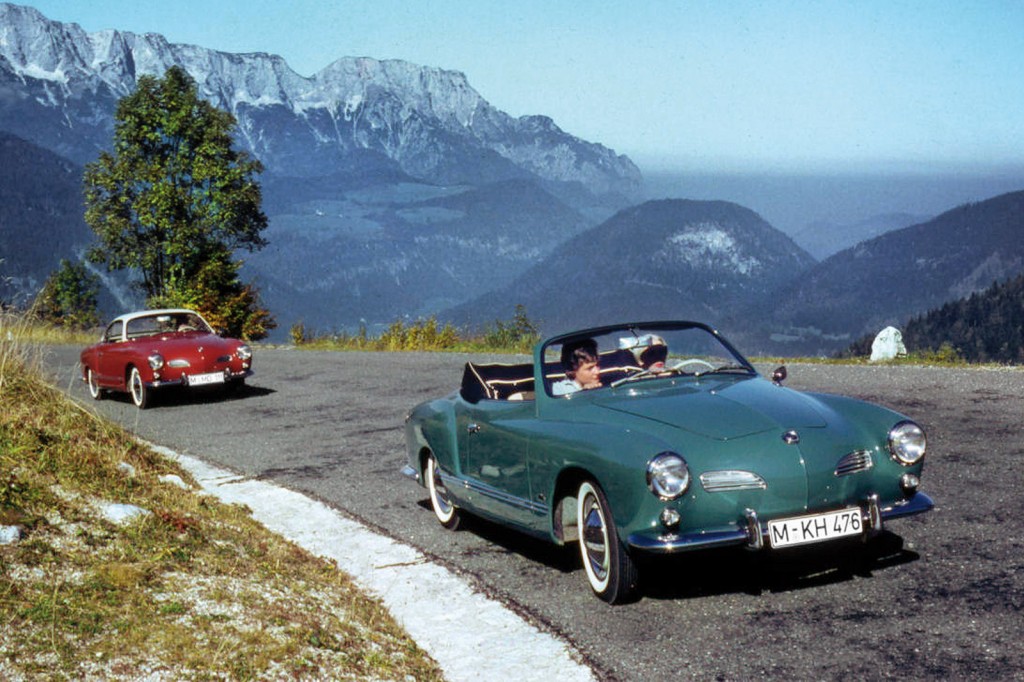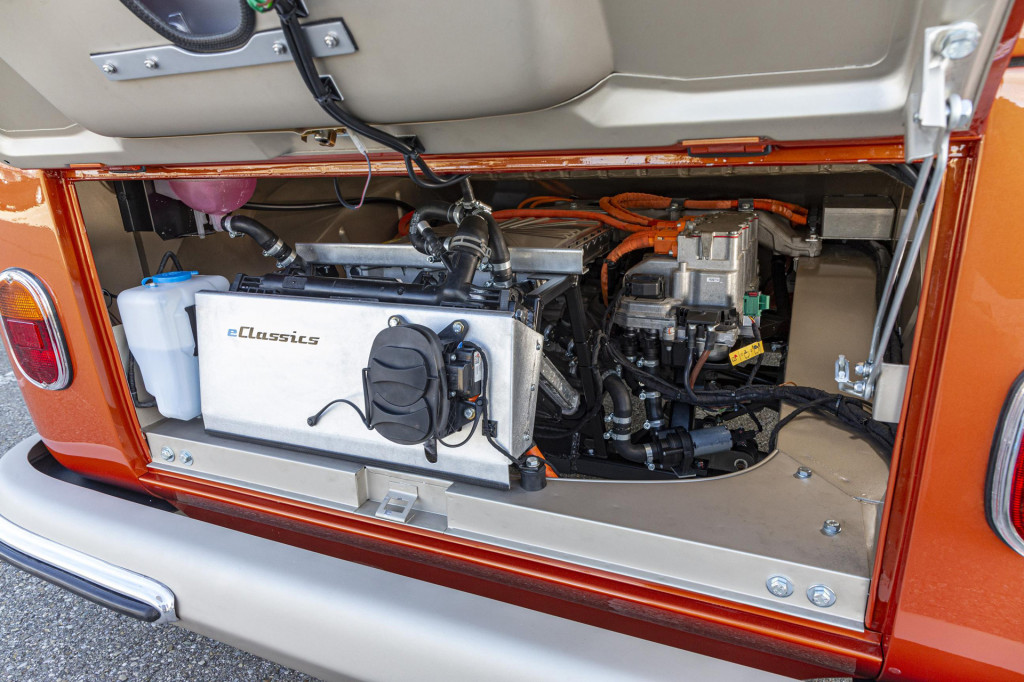Volkswagen recently teamed up with a company by the name of eClassics to convert some much-loved classics to battery-electric power.
The first was 2019's electric conversion of the original Beetle, dubbed the e-Beetle. It was followed this year by an electric conversion of the original Microbus, dubbed the e-Bulli (Bulli is the nickname for the Microbus in VW's home market).

Volkswagen e-Beetle
New trademarks filed with the European Union Intellectual Property Office this week hint at more electrified VW classics to come. Trademarks for “e-Golf Classic,” “e-Karmann,” and “e-Kübel” were all filed by VW with the EUIPO on Thursday.
The e-Golf Classic trademark is the most obvious. It hints at an electric conversion of the original, Giorgetto Giugiaro-designed Golf hatchback launched in 1974.

Volkswagen Karmann Ghia
The e-Karmann trademark points to VW planning an electric conversion of the Karmann Ghia of the 1960s. Like many of VW's other classics, the sports car has managed to generate a cult following over the years.
As for the e-Kübel trademark, it points to an electric conversion of the World War II-era Kübelwagen, a.k.a the Thing. Interestingly, there have also been rumors of VW launching a modern version of the Thing with battery-electric power.

1966 Volkswagen Samba Bus with EV conversion from eClassics
As mentioned above, VW has tapped eClassics to handle all electric conversions thus far. The company, which is based in Germany, uses electric hardware designed for VW's MEB platform for the conversions. This will ensure that sourcing parts will be convenient for owners, as there will be commonality with VW's new ID range of EVs.
While there are some who might detest the idea of converting classic cars to electric power, the practice should ensure the cars stay on the road for longer, especially in a world where emissions-based restrictions are becoming a reality. It may also open up the world of classic cars to a larger audience, which would almost certainly lead to more cars being saved from the scrap heap.
